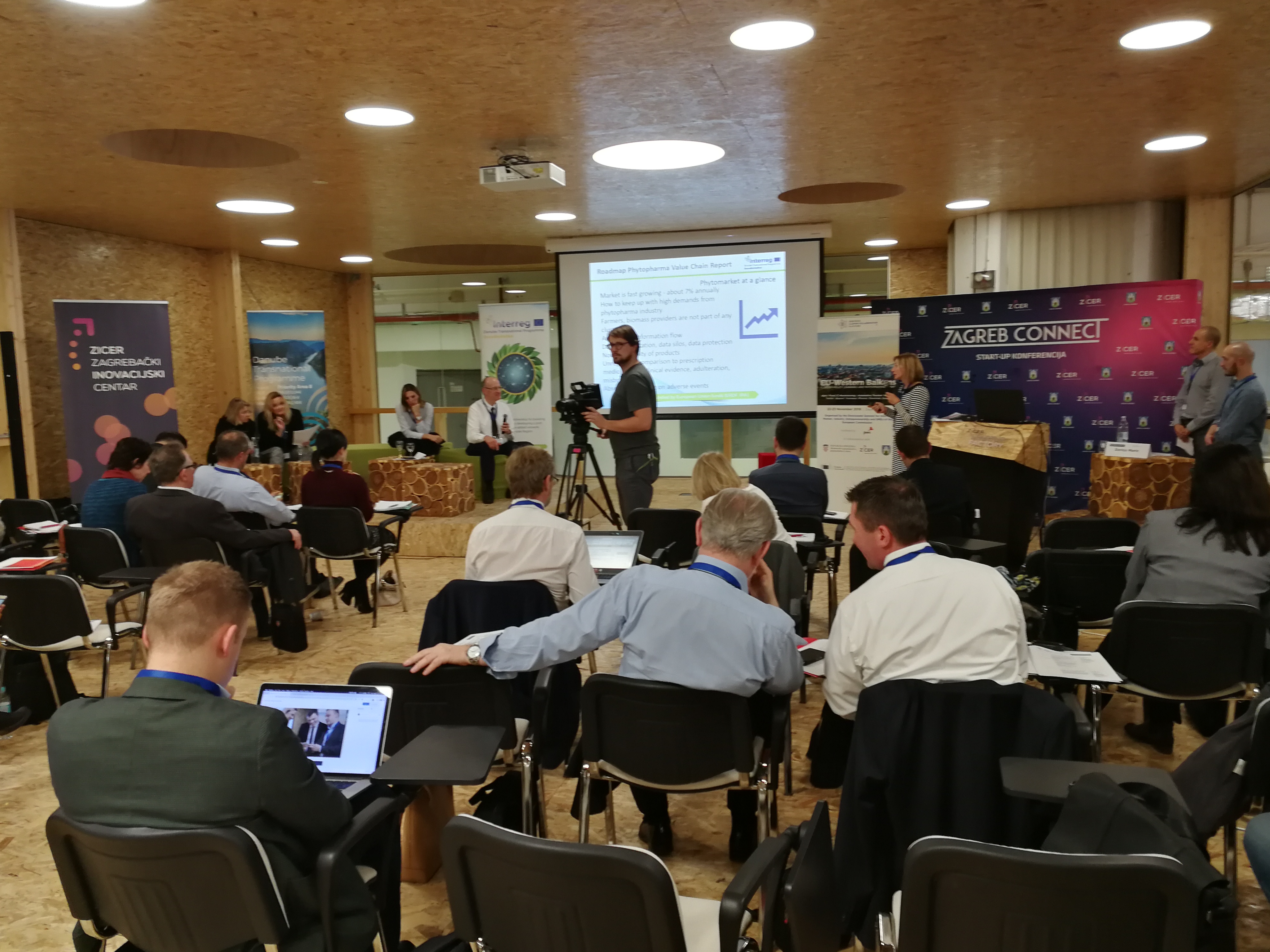FORESDA - Capitalisation continues: Eco-construction needs a cross-sectoral approach
28-11-2018
On 22nd of November, an awareness workshop of DTP DanuBioValNet project has been organized in Zagreb, in the framework of the EU Western Balkans Cluster Policy Learning and Matchmaking Event. The project was presented within the panel on “Transnational Cluster Cooperation with the Western Balkan Countries” as a good example of successful and productive transnational cooperation in terms of the (re)establishing new value chains for the bio-based products. Croatian FORESDA partners also participated and gave some active contribution, especially in terms of capitalization linked to the development of Joint Bio-Based Industry Cluster Policy Strategy, which will be created by the DanuBioValNet project. Namely, the project members already had a several information and experience exchanges related to the topic of eco-construction. Wood is one of the most important resources when it comes to the bio-based economy, and this cross-sectoral approach is exactly the one that FORESDA project is specialized for.
The aim was to present the four value chains that the project is dealing with (Phytopharmaceutical industry, Eco-construction, Bio-based packaging, and Hemp industry) with an accent on the existing gaps and possibilities on how could other sectors get involved in order to jointly develop new methods, strategies, and tools needed to connect the relevant stakeholders of the Danube Region, and to support the transformation from the fossil-based economy towards bio-based industry.
Until the end of the year, the project consortium will develop a long-term, industry-driven roadmap for the bio-based value-added networks, a Joint Bio-Based Industry Cluster Policy Strategy, which should be a main strategical document for the newly formed bio-based value chains and eco-innovation. In this way, further regional development will be supported, which represents one of the main pillars of the Danube Strategy. However, during the lively discussion, the participants pointed out a challenge linked exactly to the activities on the regional level, and the common conclusion is that more active approach on that level is needed, as well as strengthening of the framework for the future development of the clusters related to the bio-based value chains.
This cluster event was also an opportunity to present Priority Area 8 within the Danube Region Strategy, which is being coordinated by Germany (The Ministry for Economic Affairs, Labor and Housing Baden-Württemberg) and Croatia (The Ministry of Economy, Entrepreneurship and Crafts). The most important actions of this PA are focused on fostering the cooperation and exchange knowledge between SMEs, academia and the public sector, and on the improvement of the business support, especially in the rural areas, and clusters are proved to be of the great importance in those processes.
During the cluster event in Zagreb, more than 90 clusters from all Western Balkan countries, the European Union and two other COSME participating countries were presented. The event was organized by European Cluster Collaboration Platform and DG Grow and co-hosted by the Croatian Ministry of Economy, Entrepreneurship and Crafts, which is also one of the DanuBioValNet project partners.

